Celebrating the unsung heroines of UK agriculture
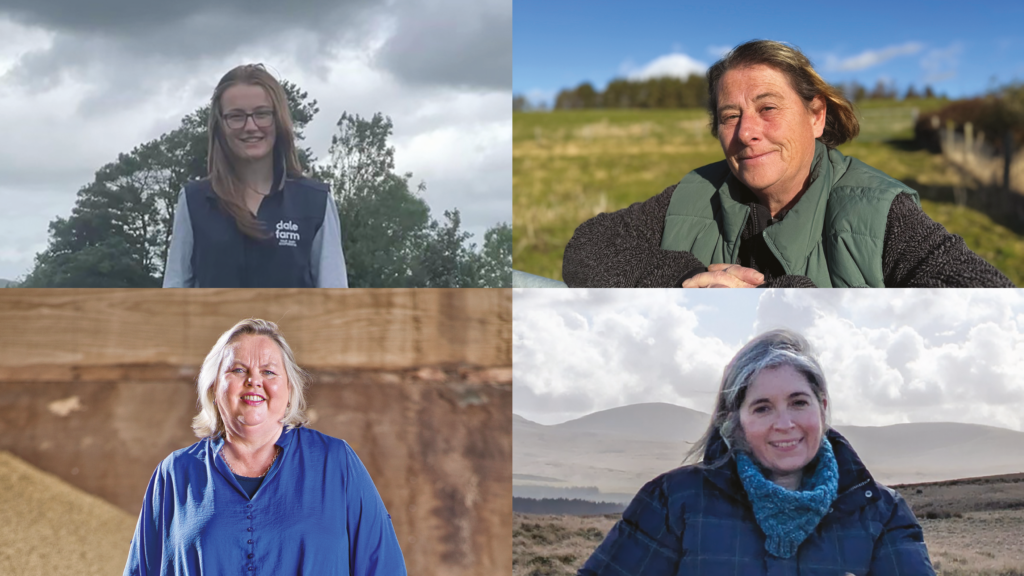
Women play an intrinsic role in agriculture – some would argue they always have. But do they get fairly recognised for the work they do, often diligently and behind the scenes?
Farmers Weekly caught up with women from all four regions of the UK to find out what makes them tick and what they think women bring to the table in 2025.
See also: Has working in ag become easier for women since 2014?
Rebecca Hill – England
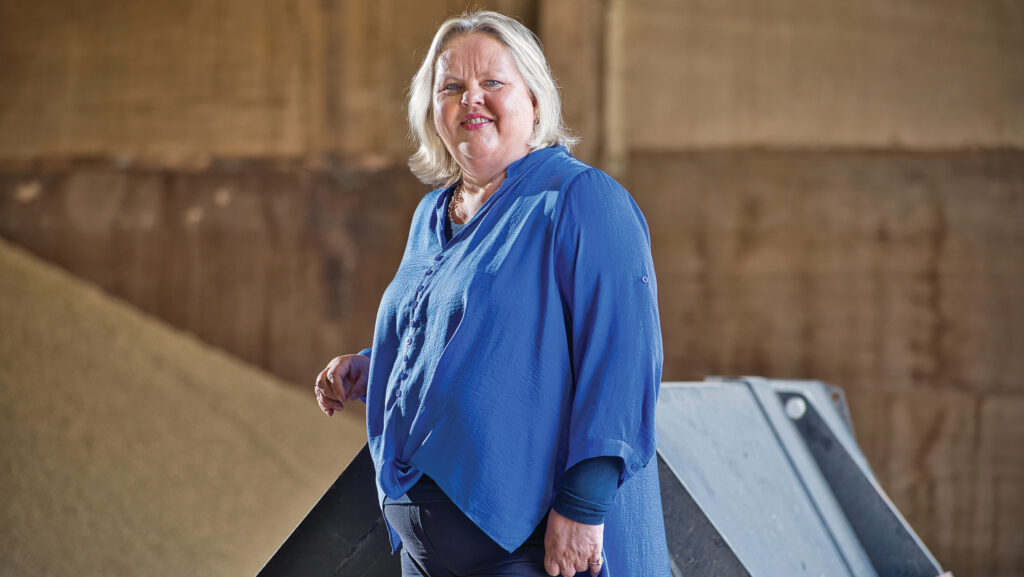
Rebecca Hill © Richard Stanton
Rebecca Hill runs an arable enterprise near Blandford in Dorset and is the fourth generation to farm there.
Her father passed away when she was quite young, leaving her to manage the farm in her own right for the past 25 years.
The 505ha farm grows wheat, barley, oilseed rape, maize and peas.
After completing her O-levels, Rebecca studied the John Edgar course in rural business management, then run at Sparsholt College in Hampshire.
She also completed the agricultural business management course run by the Worshipful Company of Farmers.
In 2014, she completed a Nuffield scholarship on “Succession of the family farm: Dividing the emotion from the business”.
As a farmer and mother, Rebecca is all too familiar with juggling various responsibilities.
“I was very hands-on before I had children, then had some help when they were little,” she says.
“They still need you when they get older, but you perhaps can’t justify the help then.
“So, you end up not sitting on the tractor and doing the physical work in the same way you did before.”
At the forefront
From the outset of her career, Rebecca knew she wanted to be a farmer in her own right.
“My mum was very much the housewife and the mother behind the scenes. I never wanted to be that person,” she says.
But have women taken on more than they should, though? Rebecca thinks so.
“My generation wanted to be at the forefront of running our own businesses and we’ve ended up having to do it all – be the provider, mother, carer. I’m not sure that we’ve necessarily got it right.”
Taking the lead in her own business, what does she think of the term “farmer’s wife”?
“I’ve never been the farmer’s wife because I’ve always been the farmer, but I think it’s an unbelievably important role,” she says.
“The term belittles what their role is within a farming partnership. They’re the anchor and glue that holds it together in many cases.”
Women have long carried their fair share of the load, but Rebecca says women must still prove themselves out there.
“I’ve always felt that I’ve had to be at the top of my game to compete with my male counterparts,” she says.
As to what challenges women face, Rebecca says diversity regulations can be women’s worst enemy.
“Women should be recruited to boards on merit and not to fill a diversity quota,” she says.
Rachel Lewis-Davies – Wales
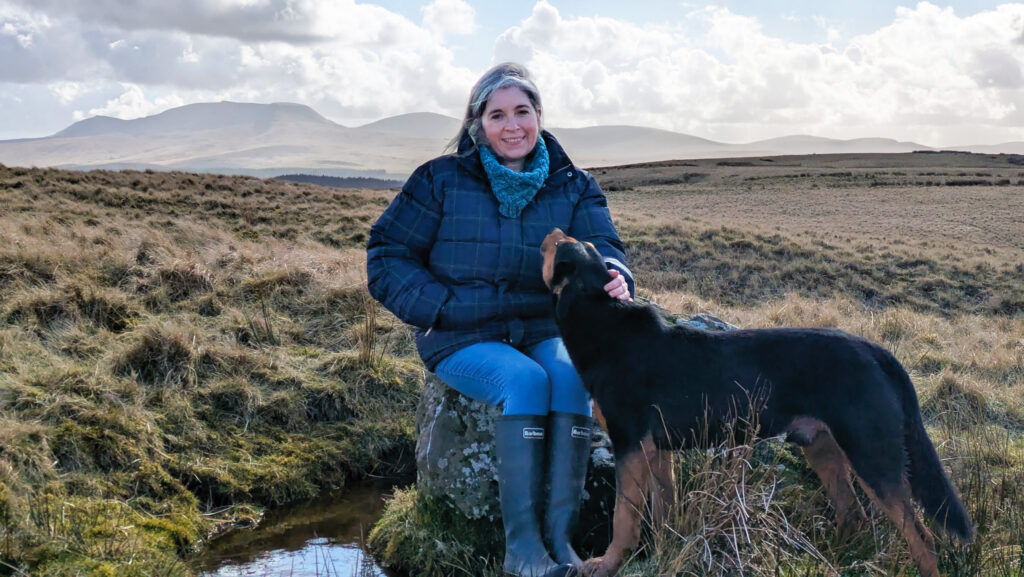
Rachel Lewis-Davies © Bobby Lewis
Rachel Lewis-Davies started her farming career young, helping her father on their upland beef and sheep farm, near Builth Wells, Powys.
His sudden and untimely death at the age of 42, when she was just 12, saw her shouldering some of the responsibilities of livestock farming, sowing the seeds of a lifelong passion.
This carried through to the “day job”, as Rachel has worked for various agricultural organisations.
She started her own farming journey in the late 1990s, securing the tenancy of a 32ha Powys County Council holding with her husband Bobby.
Then, in 2002, they took on the tenancy of a 134ha mixed farm near Brecon.
They also secured the tenancy of a 45ha hill farm with a grazing licence on Mynydd Epynt – returning to farm the “land of her fathers”.
Her late grandfather was one of the displaced Epynt community who lost their farms to the Ministry of Defence in 1940 as part of the war effort.
Notice to quit
In 2012, the family received notice to quit from their landlord.
They were left with just 12 months to raise sufficient capital to buy a 109ha hill farm on the Powys-Carmarthenshire border and start rebuilding their business from scratch.
After 30 years in the industry, Rachel describes herself as “farming mad”, quietly determined and incredibly resilient.
Women have always played an integral role on Welsh farms, Rachel says, but career options have changed over the years.
“Thirty years ago, farming wasn’t a career option like it is today. Few women went home to farm after leaving school then, but they do now.”
Commenting on the term “farmer’s wife”, Rachel says: “I can understand how some women feel it doesn’t fully reflect their role or contribution.
“They are just labels, some of which you can identify with and some you can’t. I’ve described myself as a farmer’s wife, but within our business, the recipe to success is based on true partnership.”
And does she think women have taken on too much in the bid to break free “from the shackles of the kitchen sink”? Rachel says women never were tied to that sink.
“They’ve always been out there farming and, yes, women have taken on too much.
“I think farmers in general take on too much. Society expects an awful lot.”
Ness Shillito – Scotland
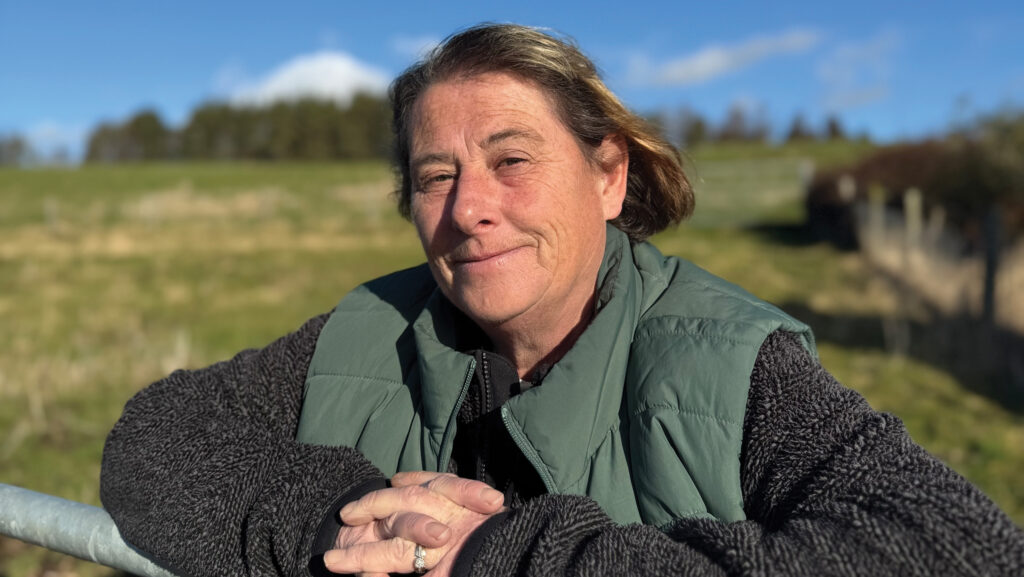
Ness Shillito © Jane Craigie Marketing
Ness Shillito farms with her partner Mike Duxbury – who is blind – having started their farming career together in 2021 with a small farm in Bedfordshire.
They have recently been offered a farm tenancy in Aberdeenshire with the MacRobert Trust.
Ness has a background working with children and young people, including those with behavioural issues, youth groups and the scouting movement.
Since taking on farming, she says she has found an inner strength she never knew she had.
“I’ve been pushed right out of every single comfort zone I possibly could have been pushed out of,” she says.
Despite being in the industry for only a short time, how does she see the role of women?
Overall, Ness says, they are equal decision makers, with their ability to adapt and manage time a much-undervalued quality.
Adaptability
When it comes to those qualities women bring to the table, Ness is clear – women’s ability to adapt to ever-changing situations is what makes them valuable partners in any business.
“We’re much more willing to adapt quickly because we do that every day, particularly if you’re a parent,” she says.
“It could be that there’s a gate left open, or there’s a dog where it shouldn’t be, a child where it shouldn’t be, and you have to think on your feet and trust your instincts.”
And what about that disputed term “farmer’s wife”?
“I had a dream of keeping house and tending the smaller animals – that was my dream. But that isn’t what a farmer’s wife is anymore.
“These days it’s more about running a business, shopping and juggling time between home and work life. That’s a farmer’s wife now.”
Megan Morrow – Northern Ireland
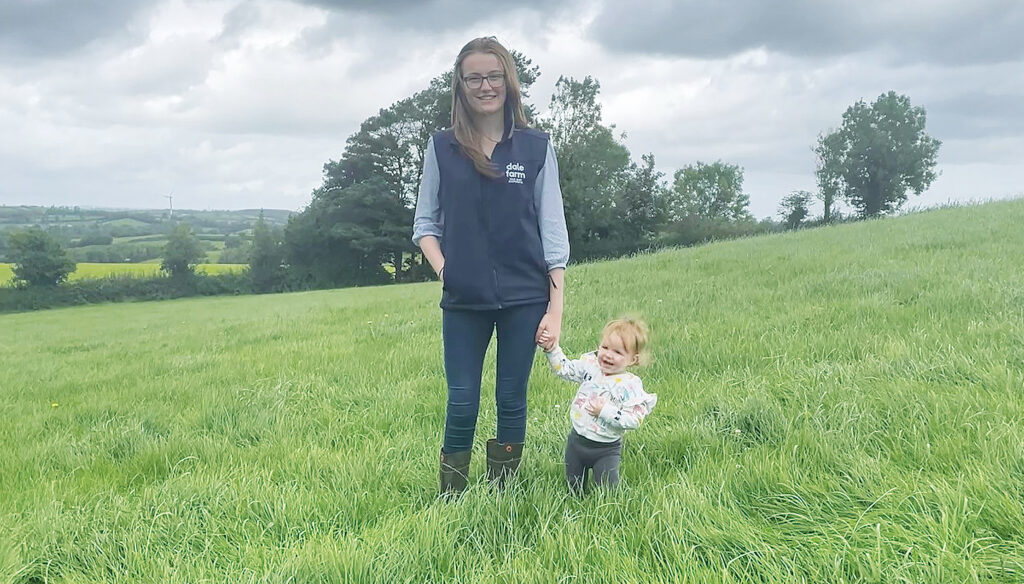
Megan Morrow with daughter Carla © Brooke Morrow
Megan Morrow has been involved with farming from a young age.
Her father passed away in 2012 and she then moved with her mum onto her uncle’s dairy farm in Ballinamallard, County Fermanagh.
Megan graduated in agriculture with animal science from Harper Adams University in 2023, while pregnant with her daughter Carla.
She then started full-time work as a sustainability adviser with the dairy company Dale Farm, as well as helping on the family farm when needed.
Megan has always been involved with farming, either on her uncle’s farm, or through milking jobs and helping with TB testing for the local vet in the summer holidays.
Her partner Bryan is a beef and sheep farmer, and the couple are currently renovating their new home on the farm.
Inclusive
The men she has encountered in her farming career, Megan says, have always been supportive and inclusive.
“My grandfather and uncle never once let my gender, or my age, stop me from getting involved, and now my uncle’s daughter and two sons are involved in all things farming as well.”
The only person who opposed her career choice in agriculture was a careers adviser, who suggested midwifery might be a better choice for her.
Most women she knows are fully involved in their farming businesses. “The only difference is that women have the family to run as well.”
At 26, what does the term “farmer’s wife” mean to her? Megan says it describes what you are, but the role has evolved.
“Many will think the term means a stay-at-home wife, but with many of us out working off the farm, it has a different meaning.”
And managing a young family and her day job, as well as being involved with the family farm, does she think women get the recognition they deserve?
“Not all the time. For me, many think that when I’m done with my day job that’s it, but I still have Carla to look after and helping on the farm.
“Bryan realises that I do much more than just a day job. The resilience of women is unreal. We just keep going,” she says.
